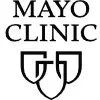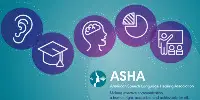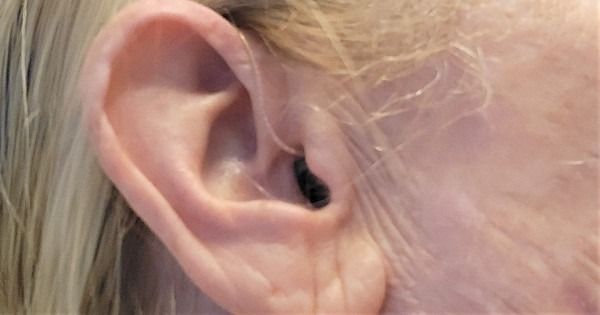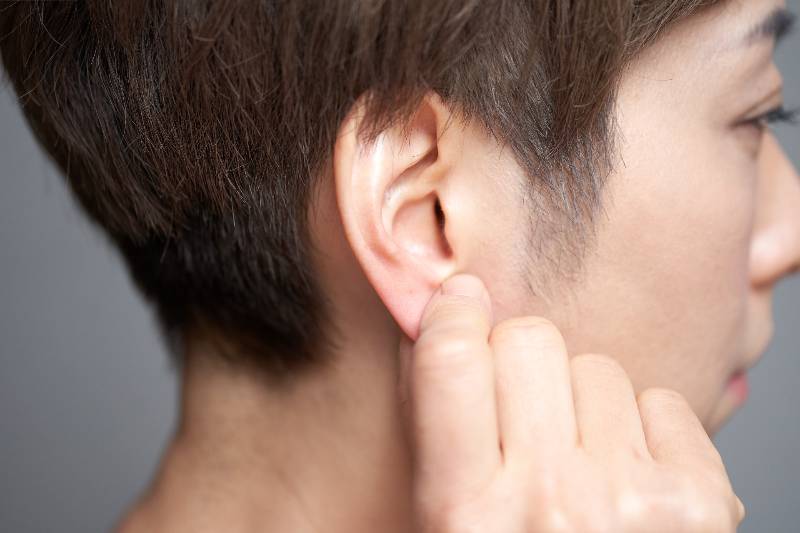Introduction
The world of Otosclerosis, a hearing condition typically affecting the small bones in the middle ear, is often associated with adults in their prime. Yet, it also has a significant presence among the elderly population, and understanding the unique considerations that come with this demographic is essential. This post delves into Otosclerosis as experienced by older adults, providing helpful insights for caregivers tasked with supporting these individuals.
This guide will help you understand the special considerations when dealing with Otosclerosis in the elderly, the intersection of Otosclerosis and age-related hearing loss, and how aging affects the progression and management of this condition. As a caregiver, grasping these nuances can better equip you to offer your loved ones the support they need.
By sharing knowledge about the unique needs of older adults with Otosclerosis, this guide aims to bridge the information gap that often leaves caregivers feeling overwhelmed. Whether you’re a professional caregiver or a family member stepping into this role, these insights can help you navigate your caregiving journey more effectively.
As we embark on this journey together, remember that caring for someone with Otosclerosis is not just about managing a medical condition. It’s about helping them maintain their quality of life and dignity as they navigate their golden years. Let’s explore together how we can make this possible.
Otosclerosis in the Elderly – Special Considerations
As Otosclerosis progresses with age, it presents unique challenges. The elderly, in general, face multiple health issues, and the addition of Otosclerosis to their health profile requires special considerations. Age-related changes in physical health, mental well-being, and lifestyle often influence the management of Otosclerosis.
Physical health conditions common among the elderly, like hypertension, diabetes, and heart diseases, may impact the progression of Otosclerosis and the effectiveness of its treatment. For instance, certain medications used for these conditions may have side effects impacting hearing, which could complicate the management of Otosclerosis. Hence, healthcare providers must consider these aspects while planning treatment strategies.
Additionally, cognitive decline, often associated with aging, can exacerbate the challenges posed by Otosclerosis. The elderly might struggle with using hearing aids or remembering the instructions given by healthcare providers. Therefore, treatment plans for older adults with Otosclerosis must take into account cognitive abilities and provide support to ensure adherence to treatment.
Bluetooth Hearing Aids for Seniors Rechargeable
Introducing our game-changing Bluetooth Hearing Aids for Seniors Rechargeable. Say goodbye to the frustrations of hearing loss and embrace a new world of crystal-clear sound and effortless connectivity.
Experience the freedom and convenience of wireless technology with these cutting-edge hearing aids. With their Bluetooth capabilities, you can easily connect to your favorite devices, such as smartphones or tablets, and stream music, phone calls, and even TV audio directly to your ears. No more tangled wires or limitations.
Designed with seniors in mind, these rechargeable hearing aids offer a comfortable and discreet fit. They are crafted to seamlessly blend into your lifestyle, ensuring you can wear them all day without discomfort. Plus, with their rechargeable feature, you can say goodbye to constantly buying and changing batteries. Simply recharge overnight and enjoy a full day of clear, amplified sound.
But the true magic lies in the enhanced sound quality provided by these hearing aids. Experience the joy of hearing conversations, music, and the world around you with incredible clarity. With advanced noise reduction technology and customizable settings, you can tailor your listening experience to your specific needs.
Don’t let hearing loss hold you back. Embrace the future of hearing technology with our Bluetooth Hearing Aids for Seniors Rechargeable. Rediscover the sounds you love and reconnect with the world around you. Say yes to effortless connectivity, exceptional comfort, and unmatched sound quality. Invest in your hearing and enhance your quality of life today.
The Intersection of Otosclerosis and Age-Related Hearing Loss
Otosclerosis and age-related hearing loss, also known as presbycusis, are two distinct conditions that can coexist in the elderly. Understanding their intersection can be complex, yet it is essential for caregivers to effectively support older adults.
Presbycusis is characterized by gradual sensorineural hearing loss associated with aging, affecting the ability to hear high-pitched sounds. It’s different from Otosclerosis, which typically results in conductive hearing loss and affects the ability to hear low-pitched sounds. When an individual experiences both conditions, the combined effect can significantly impair hearing.
Understanding this intersection helps caregivers and healthcare providers devise comprehensive strategies for diagnosis and treatment. A combination of hearing tests can be used to detect the presence of both conditions, and treatment approaches may involve addressing both types of hearing loss. Moreover, awareness about these conditions helps caregivers provide appropriate emotional and practical support to the elderly.
Understanding the Unique Needs of Older Adults with Otosclerosis
As a caregiver, recognizing the unique needs of older adults with Otosclerosis is crucial. Beyond the medical aspects, their emotional well-being and quality of life are equally important. A holistic approach to care acknowledges these different facets and provides support that meets the individual’s comprehensive needs.
Dealing with hearing loss can lead to feelings of frustration, isolation, and depression among older adults. As a caregiver, you can offer emotional support, empathetic listening, and reassurances, helping them navigate these feelings. Encouraging social interactions, hobbies, and activities they enjoy can also contribute to their mental well-being and prevent feelings of isolation.
Moreover, the practical implications of Otosclerosis need addressing. This could involve helping older adults with hearing aids, ensuring they can comfortably use them, and troubleshooting any issues they encounter. Assisting them in communication, such as using alternative methods like visual cues or writing, can also aid in easing daily interactions.
Finally, ensuring regular medical consultations and facilitating communication with healthcare providers is essential. By voicing the concerns and questions of older adults, caregivers can play a vital role in their healthcare journey.
QUIZ - CURRENT RESEARCH ON HEARING LOSS IN CHILDREN
How Aging Affects the Progression and Management of Otosclerosis
Aging has a significant impact on the progression and management of Otosclerosis. As the body ages, changes in the structure of the ear bones can accelerate the progression of Otosclerosis, often leading to more significant hearing loss. This progression might necessitate changes in treatment strategies over time.
In terms of management, age-related changes in cognitive and physical abilities can affect an individual’s capacity to adhere to treatment plans. For instance, older adults might find it challenging to handle small hearing aids or follow complicated instructions.
Additionally, age-related health conditions, such as arthritis or Parkinson’s, can further complicate the management of Otosclerosis. These conditions can make it difficult for older adults to adjust hearing aids or attend regular medical appointments.
As a caregiver, understanding these factors is crucial to providing effective support. This involves staying updated about the latest research on Otosclerosis, facilitating regular medical consultations, and collaborating with healthcare providers to ensure that treatment plans are age-appropriate and feasible.
Supporting Seniors Living with Otosclerosis – A Caregiver’s Guide
Supporting a senior living with Otosclerosis requires a blend of patience, empathy, and practical skills. As a caregiver, you are the key to ensuring that they can navigate their daily lives smoothly despite their hearing challenges.
One of the most important aspects of this role is helping older adults use hearing aids effectively. This might involve teaching them how to adjust the volume, change the batteries, and clean the device. Regular checks to ensure the hearing aids are functioning properly can also prevent any potential issues.
Moreover, communication is crucial. As hearing loss can make verbal communication challenging, consider using visual aids or written communication. Ensure your facial expressions are visible when speaking, and be patient and supportive if they struggle to understand or respond.
Emotional support is equally important. Validate their feelings, provide reassurance, and encourage them to express their fears and concerns. If needed, seek professional help, such as mental health counselors specializing in hearing loss.
Lastly, remember to take care of your own well-being. Caregiving can be emotionally and physically demanding, and self-care is essential to maintain your resilience and provide the best care for your loved one.
Conclusion
Caring for an older adult with Otosclerosis is a journey filled with challenges and learnings. By understanding the unique needs of this population, caregivers can provide comprehensive support, helping these individuals maintain their quality of life as they navigate their golden years.
The intersection of Otosclerosis and age-related hearing loss is a complex aspect that caregivers need to navigate. Yet, by partnering with healthcare providers and staying informed about the latest research, they can ensure that the seniors receive appropriate treatment that addresses their specific needs.
Moreover, acknowledging the emotional and practical implications of Otosclerosis is key to holistic caregiving. From helping seniors manage hearing aids to providing emotional support, these elements play a significant role in their overall well-being.
Aging influences the progression and management of Otosclerosis, introducing unique challenges that require special considerations. A successful caregiver embraces these changes and adapts their strategies accordingly. Whether it’s facilitating age-appropriate treatments or finding creative ways to communicate, these efforts go a long way in supporting seniors with Otosclerosis.
Above all, caregiving is about providing support and compassion, reminding older adults that they are not alone in their journey. By offering this support, caregivers play an instrumental role in helping seniors with Otosclerosis live their golden years with dignity and joy.








